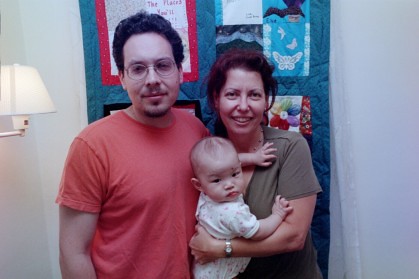🦋 Nothing to tell
I am finding this next-to-last chapter of The Black Book, "The Crown Prince", bountiful fodder for my thoughts. Thinking further tonight I reckon my initial reaction was a little hasty and missed: that Galip is insane, and so is the Crown Prince he is telling about; and that Pamuk is by no means writing a manual for healthy living -- I can make of his book what I want to, but his role as a novelist is to conjure and to describe. I was wrong about the prince only destroying western books: he also burns The Thousand and One Nights and has the Mathnawi removed from his residence -- it seems significant to me that he does not destroy this book, but that might just be me reading in.* I will remember this line when next I'm reading Rumi: "Every time he leafed through the stories in this utterly disorganized book, he found himself identifying with the dervish saint who believed disorganization to be the very essence of life." -- I have never heard that said about Rumi or about Sufi but it seems like a glorious doctrine. After battling with books and the voices inside them for ten long years, Prince Osman Celâlettin Efendi finally realized he would only become himself if he could speak in his own voice, and speak forcefully enough to drown out the voices in those books. The prince's realization here mirror's Celâl's column in Chapter 23, "A Story About People Who Can't Tell Stories" (Ooh! A-and! I had totally forgotten that his column in Chapter 16 is called "I Must Be Myself"!) -- his ultimate unspoken recognition that he is not an author, that he has no story to dictate, brings "the very silence that both men sought. Because it was only when a man had run out of stories to tell that he came close to being himself, the Prince would say." -- this Prince puts too much importance on generalizing from his own experience. Off to read some more...
 *And why no reference to the Koran?
posted evening of Monday, April 21st, 2008
➳ More posts about The Black Book
➳ More posts about Orhan Pamuk
➳ More posts about Readings
| 
